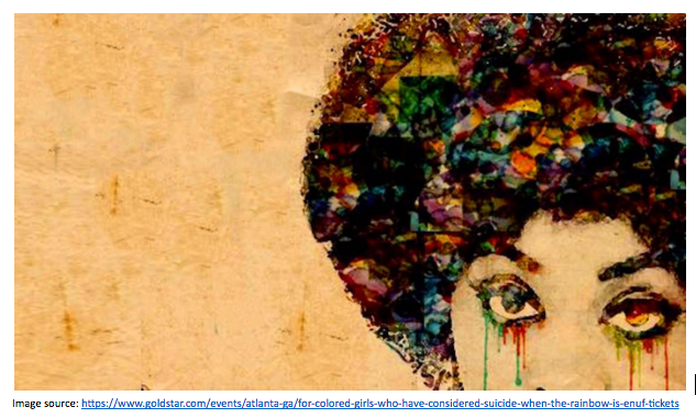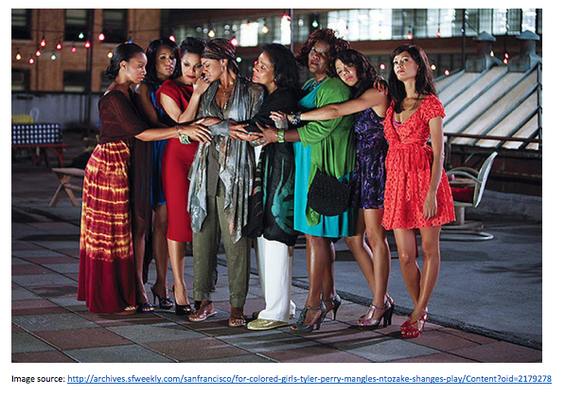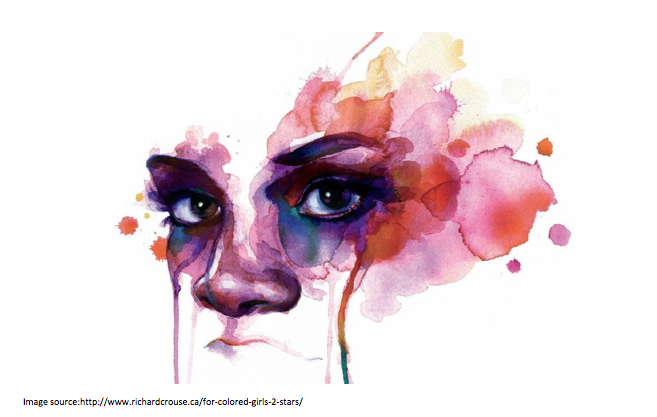|
|
Meet Rebekah Love ChristieI'd like to think of myself as a spinning, colorful vortex. I'm multi-dimensional, full of life, and never fail to look beyond the surface. There's a reason I'm a Gender Studies major and minor in Africana Studies. I'm a first generation college student, number 6 of 8 siblings, driven, and passionate about my role as a black woman in this world. I see everything, solve everything, and speak in a creative framework. If I was broken down into atoms, you'd see a million mini creative projects. For more about Rebekah, click here for my ePortfolio.
|

"And When You Leave, Take Your Pictures with You: Racism in the Women's Movement" is a foundational text about white women exclusivity in feminism and disregard for women of color. From the point of view of women who are Puerto Rican, Native American, Asian-Pacific American, and African-American, this chapter from This Bridge Called Our Back brings together poems, essays, and open letters. Some of the writings were directed to other women of color and others were addressed to white women. All the writings were raw reflections that supported an open dialogue and analysis of feminism, black feminism, intersectionality, culture, oppression, and white privilege.

The women who wrote for this part of This Bridge gave honest insight into what women of color experience on the path of equality. It opened those willing to be open to the fact that even within the women's movement, there's racism, discrimination, and oppression. The section shined light on the complete disregard for women of color and their specific needs. It also gave way to self-reflection from the reader because of the writers' brutal honesty and retrospect that gave way for personal transformation. I appreciated the realness in Rosario Morales, "We're All in the Same Boat." What I loved the most that had me nodding yasss, snapping my fingers, and making annotations was Morales's ability to be honest with herself. She said, "I carry a shell a white and crisp voiced shell to hide my brown golden soft Spanish voiced inner self to pass to hide my Puertoricanness." I love how poetic this line is, even if it wasn't meant to be. If only more white feminists would publicly acknowledge how their stifled opinions of people of color are carried into the feminist movement. Morales continues, "I carry a pole 18 inches long to hold me at the correct distance from black-skinned people." Here, she's challenging us to see the racism we carry within by sharing her own prejudices. I have more respect for her. I can appreciate what barriers she's dismantled within herself by admitting this and taking it a step further to share it.

Excuse my French, but this aspect of This Bridge was a thick and long middle finger to white America. The women are pretty much saying, fuck you America, your standards, and all the bullshit you come with, in the most intellectual and intelligent way. It meets America where it is but also gives it what it doesn't want: the blackness, non-conformity, authentic culture, and obviously honesty and truth. It tells America about itself while educating it. But the book also says, "we don't give a shit how you feel about what we're saying or if you even consider our words, we going do us regardless." It's radical in every sense and America still doesn't like that.
